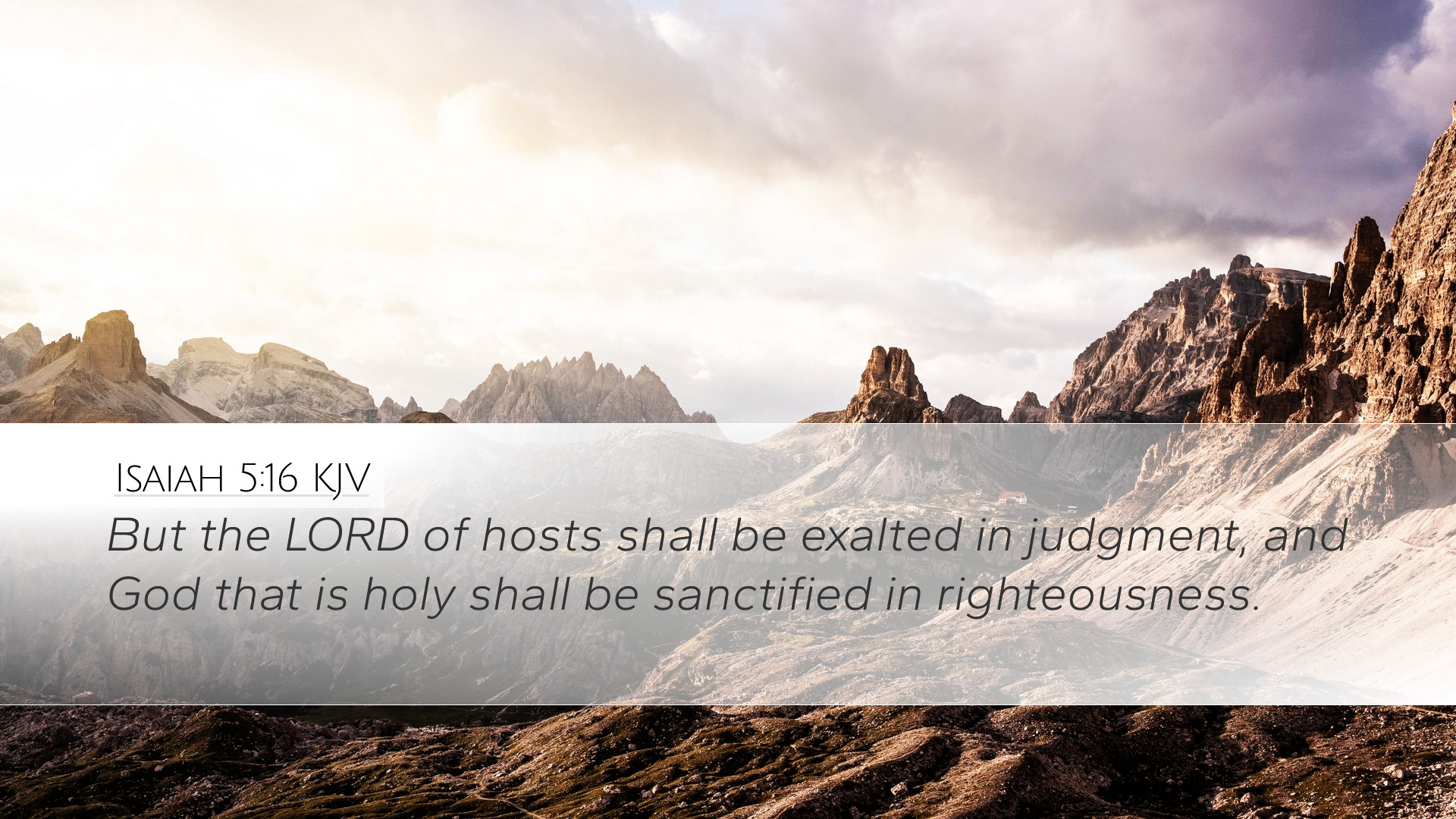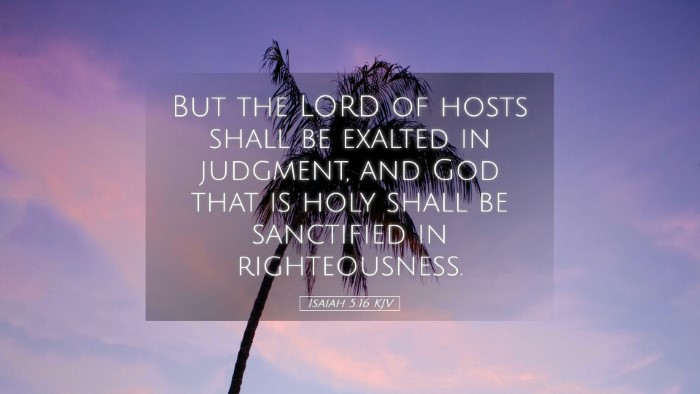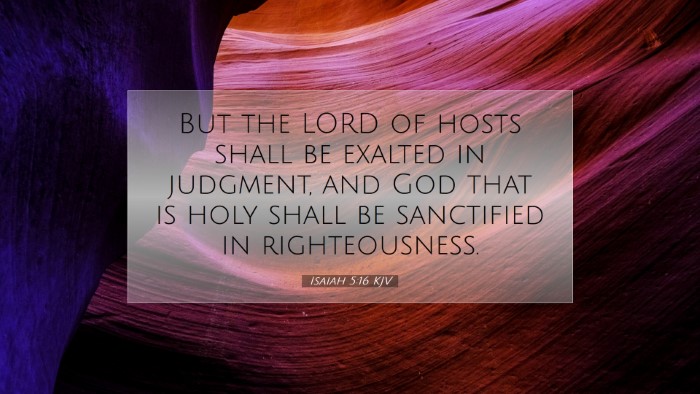Commentary on Isaiah 5:16
Verse: Isaiah 5:16 - "But the Lord of hosts shall be exalted in judgment, and God that is holy shall be sanctified in righteousness."
Introduction
This verse presents a profound truth about God's holiness and judgment. It encapsulates the central theme of God's righteousness and the exaltation of His character through divine judgment. The commentaries by Matthew Henry, Albert Barnes, and Adam Clarke provide us with rich insights that enhance our understanding of this passage.
Matthew Henry’s Insights
Matthew Henry emphasizes the majesty of God as a judge who administers justice. He notes that:
- Exaltation in Judgment: The phrase "the Lord of hosts shall be exalted" signifies God's supreme authority over all creation. His judgments are not arbitrary; they reflect His holiness and righteousness.
- Holiness and Righteousness: Henry points out that God's holiness is integral to His nature. The righteousness of God in judgment sanctifies Him, affirming His perfection and the moral order He establishes.
- Ultimate Accountability: God’s judgment serves as a reminder that humanity is accountable to Him and that His standards must be revered and upheld.
Albert Barnes’ Commentary
Albert Barnes provides a more contextual analysis, expressing that this verse stands in stark contrast to the preceding verses that denounce the sins of Israel:
- The Sovereignty of God: Barnes reinforces that God's sovereignty and moral governance ensure that righteousness prevails. Humans may defy His laws temporarily, but in the end, God will be vindicated.
- Judgment as Revelation: He discusses how God's judgment reveals His righteousness and serves as a means to reclaim a rebellious people, emphasizing that God's holiness is displayed through justice over sin.
- Exaltation through Righteousness: Barnes notes that God's exaltation is achieved not through arbitrary means, but through the consistent application of His righteous laws.
Adam Clarke’s Viewpoint
Adam Clarke diversifies the analysis by exploring the implications for the people of Israel within their historical context:
- Historical Context: Clarke highlights that Isaiah was addressing a society mired in moral decay, proclaiming God’s judgments as a call to repentance.
- Sanctification through Judgment: The transformation of judgment into sanctification signifies the purifying effect of God's intervention in human affairs. He suggests that true righteousness leads to holiness, celebrating the need for restoration.
- God’s Enduring Glory: Clarke concludes that the ultimate purpose of God's judgment is to bring glory to His Name, showcasing His holiness as a vital axis around which the world rotates.
Convergence of Commentary Insights
All three commentators converge on the fundamental attributes of God in this verse:
- Divine Holiness: God's holiness is the bedrock of His character, influencing all His actions, especially regarding judgment.
- Judgment and Accountability: There is an emphasis on the principle that God’s judgments are just, reinforcing the moral responsibility of humanity.
- Righteousness as Exaltation: The theme of exaltation associated with God’s righteous judgment signifies that God’s ways are higher than human understanding, and His glory is manifest in His justice.
Theological Reflections
For pastors, theologians, and students of the Word, Isaiah 5:16 serves as a theological anchor:
- Understanding Righteous Judgment: This passage encourages a deeper grasp of the nature of God’s judgments, urging believers to reflect the holiness of God in their lives.
- Encouragement to Seek God’s Righteousness: The emphasis on sanctification through righteousness beckons believers to pursue holiness as a reflection of God’s character.
- Hope in Divine Justice: In times of apparent injustice, this verse offers assurance that God, as judge, will ultimately exalt His righteousness, instilling hope in the faithful.
Conclusion
Isaiah 5:16 encapsulates a significant theological reflection on the nature of God, His holiness, and the assurance of divine justice. The insights from Henry, Barnes, and Clarke collectively remind us of the imperative to recognize God’s authority in our lives and the moral alignment we need to maintain in our walk of faith. As we navigate the complexities of contemporary challenges, this verse calls us back to the core tenets of holiness and righteousness that define our relationship with God.


